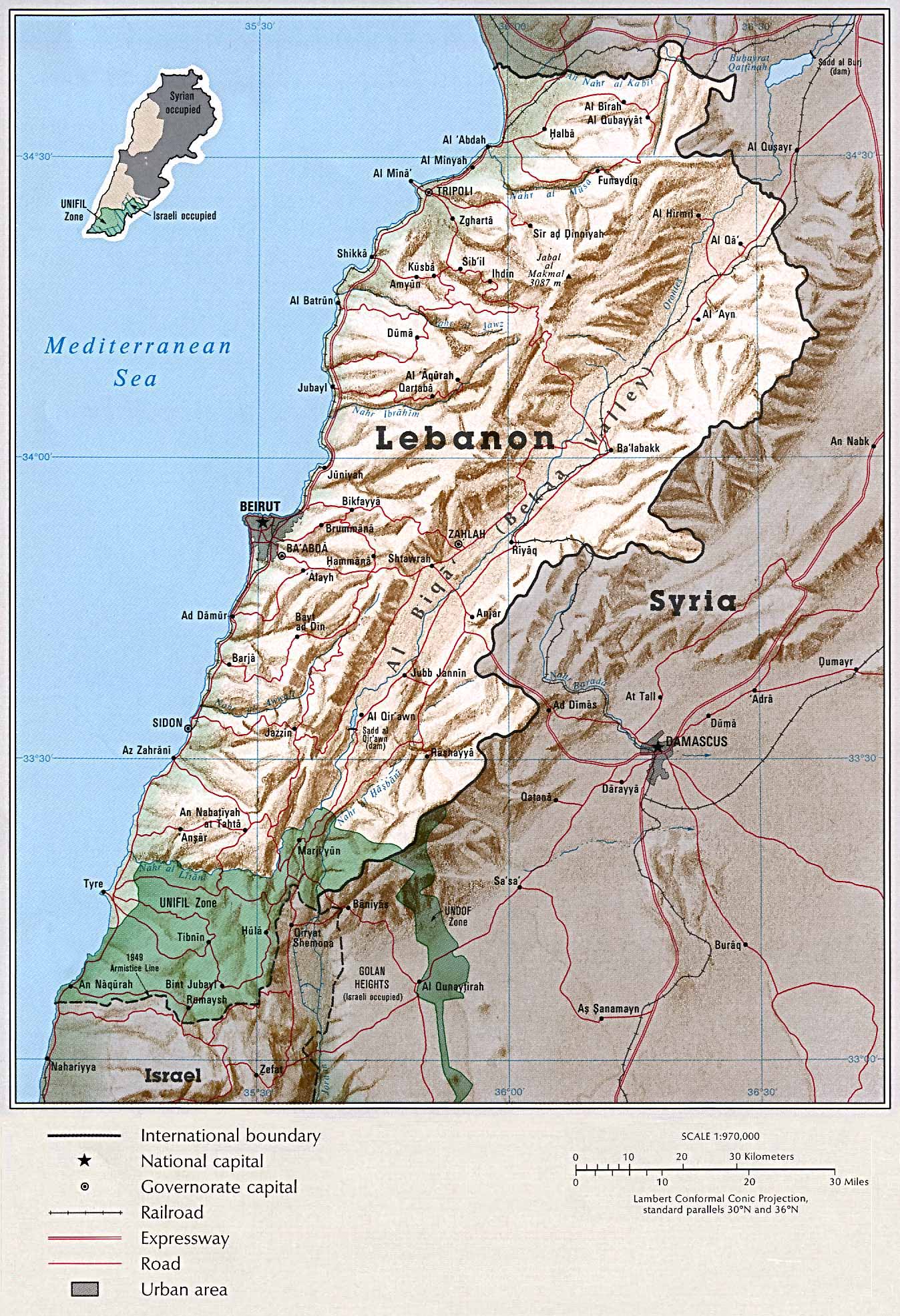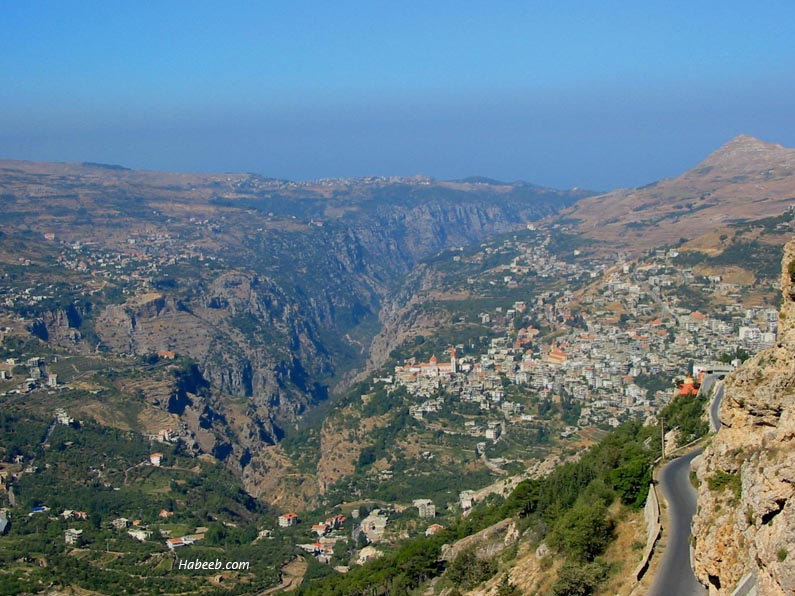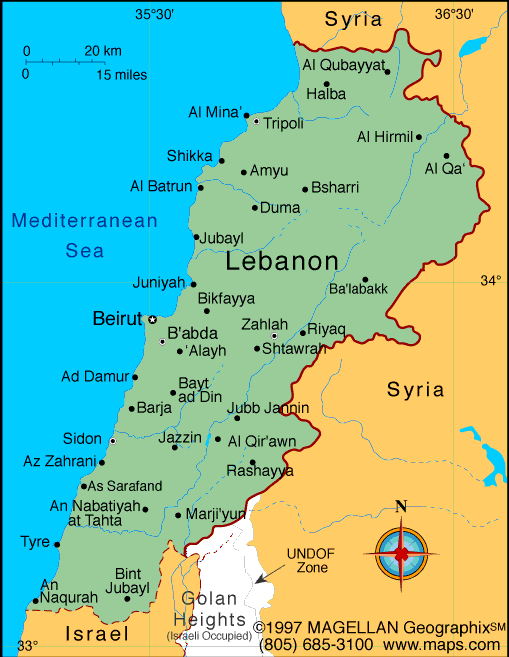The earliest evidence of civilization in Lebanon dates back more than 7,000 years—predating recorded history. Lebanon was the home of the Phoenicians, a maritime culture that flourished for nearly 2,500 years (3000–539 BC). Following the collapse of the Ottoman Empire after World War I, the five provinces that comprise modern Lebanon were mandated to France. The French expanded the borders of Mount Lebanon, which was mostly populated by Maronite Catholics and Druze, to include more Muslims. Lebanon gained independence in 1943, and established a unique political system, known as confessionalism, a power-sharing mechanism based on religious communities - Riad El-Solh, who became Lebanon's first prime minister, is considered the founder of the modern Republic of Lebanon and a national hero for having led (and died for) the country's independence. French troops withdrew in 1946.
Before the Lebanese Civil War (1975–1990), the country experienced a period of relative calm and prosperity, driven by tourism, agriculture, and banking Because of its financial power and diversity, Lebanon was known in its heyday as the "Switzerland of the East It attracted large numbers of tourists, such that the capital Beirut was referred to as "Paris of the Middle East." At the end of the war, there were extensive efforts to revive the economy and rebuild national infrastructure.
Until July 2006, Lebanon enjoyed considerable stability, Beirut's reconstruction was almost complete, and increasing numbers of tourists poured into the nation's resorts. Then, the month-long 2006 war between Israel and Hezbollah caused significant civilian death and heavy damage to Lebanon's civil infrastructure.
However, due to its tightly regulated financial system, Lebanese banks have largely avoided the financial crisis of 2007–2010. In 2009, despite a global recession, Lebanon enjoyed 9% economic growth and hosted the largest number of tourists in its history.
* 1 Etymology
* 2 History
o 2.1 Ancient history
o 2.2 Medieval times
o 2.3 French mandate and independence
o 2.4 1948 Arab-Israeli war
o 2.5 Civil war and beyond
+ 2.5.1 Cedar Revolution
+ 2.5.2 The UN Investigation and the controversy
+ 2.5.3 2006 Israel-Lebanon conflict
+ 2.5.4 Nahr al-Bared conflict
+ 2.5.5 2008 Internal Strife
+ 2.5.6 2011 Government Collapse
* 3 Geography and climate
* 4 Government and politics
o 4.1 Foreign relations
o 4.2 Military
* 5 Governorates and districts
* 6 Economy
* 7 Tourism
* 8 Education
o 8.1 Schools
o 8.2 Higher education
* 9 Demographics
o 9.1 Religion
o 9.2 Language
o 9.3 Diaspora
o 9.4 Refugees
* 10 Culture
o 10.1 Overview
o 10.2 National flag
o 10.3 Holidays
o 10.4 Television
o 10.5 Sports
o 10.6 Arts and literature
o 10.7 Music
o 10.8 Festivals
o 10.9 Film
* 11 See also
* 12 Notes
* 13 References
* 14 Further reading
* 15 External links
The name Lebanon comes from the Semitic root lbn, meaning "white", likely a reference to the snow-capped Mount LebanonOccurrences of the name have been found in texts from the library of Ebla which date to the third millennium BC, nearly 70 times in the Hebrew Bible, and three of the twelve tablets of the Epic of Gilgamesh (perhaps as early as 2100 BC)
The name is recorded in Ancient Egyptian as Rmnn, where R stood for Canaanite L
 Lebanon
Lebanon Lebanon
Lebanon Lebanon
Lebanon Lebanon
Lebanon Lebanon
Lebanon Lebanon
Lebanon Lebanon
Lebanon Lebanon
Lebanon Lebanon
Lebanon Lebanon
Lebanon Lebanon
Lebanon Lebanon
Lebanon
evening boutique in lebanon
ReplyDeleteEsposa is home to a beautiful and luxurious collection of evening gowns and evening dresses. Find us in Dubai and in Lebanon as well as online.
to get more - http://esposagroup.com/lb/en/evening-dresses